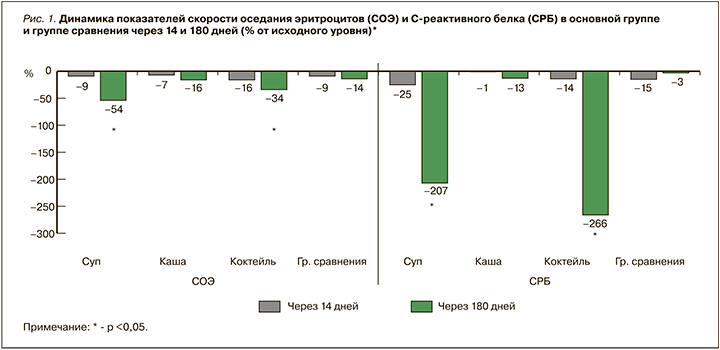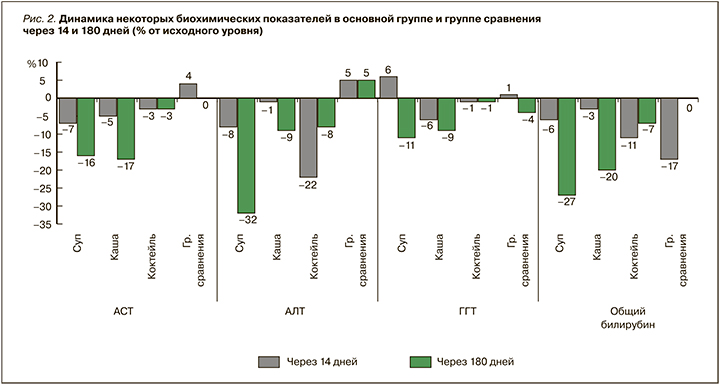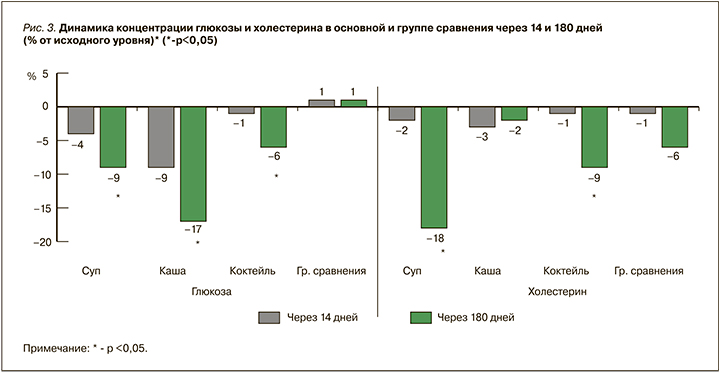Язва желудка относится к наиболее распространенным заболеваниям верхних отделов желудочно-кишечного тракта (ЖКТ). Ее распространенность составляет 2,4% в западной популяции [1], а годовые показатели заболеваемости колеблются от 0,10 до 0,19% [2]. В некоторых регионах Китая встречаемость язвенной болезни желудка достигает 6,07% в общей популяции, при этом ее диагностируют у 22,5% пациентов с желудочно-кишечными симптомами [3, 4].
Бактерия H. pylori, колонизирующая слизистую оболочку желудка, – наиболее частая причина ее воспалительных изменений, она признана этиологическим фактором гастрита, а сам гастрит – инфекционным заболеванием [5]. Согласно данным из различных регионов нашей страны, инфекцию H. pylori обнаруживают у 65–92% взрослых [6], в связи с чем вопросы ее диагностики и лечения крайне актуальны.
Важно отметить, что возрастание смертности от болезней органов пищеварения в определенной степени связано с проблемами нерационального и некачественного питания населения. В связи с этим одними из основных требований к диетотерапии при гастроэнтерологических заболеваниях являются контроль химического состава и энергетической ценности диеты, а также ее оптимизация за счет включения в рацион диетических (лечебных) пищевых продуктов, специализированных продуктов, смесей для энтерального питания и биологически активных добавок к пище [7].
Фитотерапия использовалась для лечения заболеваний ЖКТ на протяжении тысячелетий. Несколько контролируемых клинических исследований показали, что растительные лекарственные средства (подорожник ланцетолистный, женьшень обыкновенный, пион уклоняющийся, померанец, коптис китайский, имбирь аптечный, облепиха крушиновидная, солодка, бакопа) эффективны при лечении язвенной болезни желудка. Авторы установили, что у 86% пациентов с язвой желудка наблюдалось улучшение на фоне приема экстрактов этих растений в течение 6 нед [8]. В другом исследовании также отмечался клинически подтвержденный эффект от использования экстрактов растительного происхождения в отношении заболеваний ЖКТ [9]. Улучшение клинических симптомов произошло уже через 3 дня после приема экстрактов растений [10–14].
Эффективность лекарственных средств растительного происхождения при лечении язвенной болезни желудка сопоставима с эффективностью антагонистов Н2-рецепторов гистамина: так, исследования показали, что фитотерапия сравнима или даже превосходит циметидин при лечении язв желудка или двенадцатиперстной кишки [15]. Кроме того, комбинация фитотерапии и ранитидина обладает синергическим эффектом при лечении язвенной болезни желудка. Фитопрепараты эффективно излечивают язву желудка и предотвращают рецидивы. Например, в одном из исследований было показано, что прием растительных экстрактов способствовал выздоровлению 62,4% обследуемых, в то время как частота рецидивов у них составила 17,7% после 1 года наблюдения [16]. Исследования на пациентах и животных моделях свидетельствуют, что биологически активные вещества растительного происхождения проявляют терапевтический эффект в отношении различных заболеваний ЖКТ посредством многочисленных механизмов, включая усиление антиоксидантной активности, стимуляцию пролиферации слизистой оболочки, ингибирование секреции соляной кислоты, увеличение производства слизи, а также уменьшение воспаления [17–19].
Учитывая положительный опыт использования биологически активных компонентов растительного происхождения в лечении болезней ЖКТ, компания ООО «ЛЕОВИТ нутрио» выпустила серию продуктов ЛЕОВИТ GASTRO. Это набор специализированных пищевых продуктов диетического лечебного и диетического профилактического питания при болезнях ЖКТ, включающий инстантные смеси для приготовления готовых блюд «Каша овсяная с травами и семенем льна», «Коктейль белково-облепиховый», «Суп-пюре овощной с травами и овсянкой» (далее – GASTRO-продукты).
Целью настоящего исследования стала оценка эффективности специализированной диетотерапии у пациентов с заболеваниями ЖКТ с использованием лечебно-профилактических продуктов серии GASTRO.
МАТЕРИАЛ И МЕТОДЫ
Для проведения клинического исследования была сформирована основная группа из 41 пациента (20 мужчин и 21 женщина, средний возраст 40,8±9,3 года), разделенная на три подгруппы. Каждая из них получала один вид специализированного пищевого продукта диетического лечебного и диетического профилактического питания: «Суп-пюре овощной с травами и овсянкой» (n=14), «Кашу овсяную с травами и семенем льна» (n=14), «Коктейль белково-облепиховый» (n=13).
Группу сравнения составили 30 пациентов с заболеваниями органов ЖКТ, не получавшие GASTRO-продукты (14 мужчин и 16 женщин, средний возраст 41,4±7,9 года). Среди клинических форм у участников исследования были диагностированы хронический гастрит, язвенная болезнь желудка и/или двенадцатиперстной кишки в стадии ремиссии, гастроэзофагеальная рефлюксная болезнь (ГЭРБ), хронический панкреатит, хронический холецистит, дискинезия желчевыводящих путей. Пациенты в основной группе и группе сравнения получали одинаковую стандартную терапию по основным нозологиям.
Органолептические свойства специализированных пищевых продуктов диетического лечебного и диетического профилактического питания оценивались по 5 параметрам (внешний вид, запах, цвет, вкус, консистенция) с использованием 5-балльной системы.
Оценка динамики показателей клинического анализа крови (уровней гемоглобина, лейкоцитов, эритроцитов, показателей лейкоцитарной формулы) проводилась на автоматическом анализаторе Sysmex XT-2000i.
Оценка динамики показателей метаболических нарушений функции печени, включая биосинтетические и секреторные (активность аспарагиновой (АСТ) и аланиновой (АЛТ) аминотрансфераз, гамма-глютамилтранспептидазы (ГГТ), содержание общего билирубина), выполнялась на автоматическом биохимическом анализаторе Konelab PRIME 30i (ThermoFisherScientific). Кроме этого, оценивалась динамика спектра липидов крови по содержанию общего холестерина, а также уровня глюкозы в крови натощак.
Все лабораторные показатели оценивались трижды: до применения GASTRO-продуктов, через 14 и 180 дней применения указанного продукта.
Статистическая обработка данных проводилась с использованием пакета программ Statistica 6.0 фирмы Stat Soft@Ink USA. При статистической обработке материала были использованы непараметрические критерии. Величину статистической значимости определяли как р <0,05.
РЕЗУЛЬТАТЫ И ОБСУЖДЕНИЕ
Прием лечебных GASTRO-продуктов переносился хорошо, при этом пациенты отмечали их благоприятные органолептические свойства. На протяжении всего исследования у участников основных подгрупп не было выявлено обострений хронических заболеваний, аллергических реакций или явлений пищевой непереносимости.
Для оценки возможных побочных эффектов и токсического действия отдельных биологически активных компонентов GASTRO-продуктов была изучена динамика клинического анализа крови и некоторых биохимических показателей (табл. 1). При анализе лабораторных данных не было выявлено изменений в сторону ухудшения показателей за весь период наблюдения, колебания показателей клинического анализа крови находились в пределах нормы. Отсутствовали признаки воспалительных реакций.
Результаты исследований уже через 14 дней показали тенденцию к снижению скорости оседания эритроцитов (СОЭ) и концентрации C-реактивного белка (СРБ) (рис. 1). Через 180 дней эти изменения достигли достоверных значений: так, в подгруппе, получавшей лечебный «Суп-пюре овощной с травами и овсянкой», СОЭ и концентрация СРБ снизились на 54 и 207% от исходного уровня, соответственно; в подгруппе, получавшей лечебную «Кашу овсяную с травами и семенем льна», аналогичное снижение составило 16 и 13% соответственно, а в подгруппе, применявшей лечебный «Коктейль белково-облепиховый», – 34 и 266%, соответственно. При этом в группе сравнения изменения этих показателей не имели статистической достоверности. Таким образом, для всех изученных продуктов характерно в той или иной степени противовоспалительное действие, что клинически выражается в уменьшении болевого синдрома и частоты спастических болей в эпигастральной области.

Для оценки влияния исследуемых продуктов на показатели метаболических нарушений функции печени была изучена ее биосинтетическая и секреторная активность. Установлено, что в основной группе через 14 дней умеренно снижались концентрации в плазме крове АСТ, АЛТ и ГГТ, а также общего билирубина. При этом в группе сравнения различия были минимальны. Эта тенденция сохранилась и к концу исследования. Так, в подгруппе, получавшей «Суп-пюре овощной с травами и овсянкой», АСТ, АЛТ, ГГТ и общий билирубин снизились на 16, 32, 11 и 27% от исходного уровня соответственно, в подгруппе, получавшей «Кашу овсяную с травами и семенем льна», – на 19, 9, 9 и 20%, а в подгруппе, получавшей «Коктейль белково-облепиховый», – на 2, 8, 1 и 7% (рис. 2). Полученные результаты подтверждают безопасность и отсутствие токсического воздействия даже при длительном приеме GASTRO-продуктов.

Другой положительный эффект заключается в том, что диетотерапия с использованием GASTRO-продуктов способствует нормализации уровня глюкозы и холестерина в крови. В начале исследования у пациентов обеих групп имелись нарушения липидного профиля и снижение толерантности к глюкозе. Во всех подгруппах основной группы через 180 дней от начала исследования произошло статистически достоверное снижение концентрации глюкозы и холестерина в крови. Так, в подгруппе, получавшей «Суп-пюре овощной с травами и овсянкой», холестерин и глюкоза снизились с 6,11±0,19 до 5,48±0,14 ммоль/л и с 5,69+0,8 до 5,15+0,09 ммоль/л, или на 18 и 9% от исходного уровня соответственно. В подгруппе, получавшей «Кашу овсяная с травами и семенем льна», эти показатели снизились с 6,08±0,13 до 5,41±0,13 ммоль/л (холестерин) и с 5,96+0,10 до 5,09+0,11 (глюкоза), или на 12 и 17% от исходного уровня соответственно; в подгруппе, получавшей «Коктейль белково-облепиховый», – с 6,39±0,16 до 5,86±0, 14 ммоль/л и с 5,66±0,09 до 5,34±0,08 ммоль/л, или на 9 и 6% от исходного уровня соответственно (рис. 3). При этом в группе сравнения эти различия носили недостоверный характер. Гипогликемический эффект достигается за счет включения в состав GASTRO-продуктов дитерпеновых гликозидов стевии – органических соединений неуглеводной природы с усредненным коэффициентом сладости 300, способствующих нормализации концентрации глюкозы в крови, улучшению регенерации клеток, нормализации микрофлоры кишечника. Гипохолестеринемическое действие GASTRO-продуктов достигается за счет высокого содержания в них инулина и полиненасыщенных жирных кислот.

Наши данные подтверждают результаты работы по изучению действующих веществ, полученных из тысячелистника на лабораторных моделях: кроме эффекта в отношении маркеров окислительного стресса было установлено, что экстракт тысячелистника in vitro способен ингибировать активность α-амилазы и снижать постпрандиальную гипергликемию [19].Это позволяет рекомендовать лечебные GASTRO-продукты пациентам с заболеваниями ЖКТ, имеющим сопутствующие обменные нарушения.

ЗАКЛЮЧЕНИЕ
Таким образом, проведенные исследования подтверждают эффективность специализированной лечебно-профилактической диетотерапии у пациентов с заболеваниями ЖКТ при применении GASTRO-продуктов. Полученные результаты указывают на то, что клинически выраженный эффект наступает через 14 дней от начала приема специализированных пищевых продуктов лечебного и диетического профилактического питания «Суп-пюре овощной с травами и овсянкой», «Каша овсяная с травами и семенем льна», «Коктейль белково-облепиховый». Отметим, что пациенты могут принимать как один вид продукта, так и комбинировать различные продукты этого набора, руководствуясь личными предпочтениями.
Все исследованные продукты обладают в той или иной степени противовоспалительной активностью, что выражается в достоверном снижении уровней СРБ и СОЭ, оказывают гипохолестеринемический и гипогликемический эффекты, не вызывают аллергических реакций и токсических эффектов даже при длительном применении. Индивидуальная расфасовка, простота приготовления, стабильный состав позволяют рекомендовать их в качестве специализированных продуктов лечебного и профилактического питания для включения в комплексную терапию заболеваний ЖКТ, а также профилактики обострений и продления ремиссий. При этом рецептуры разработаны таким образом, что лечебный суп-пюре в большей степени способствует снижению воспалительного процесса за счет противомикробного действия, лечебная каша – уменьшению болевого синдрома за счет большого количества слизи и дубильных веществ, а лечебный коктейль – эпителизации поврежденных слизистых оболочек.



